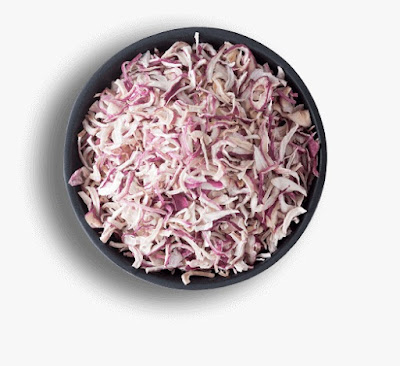The Convenience and Benefits of Dehydrated Vegetables
Due to their many benefits, dehydrated vegetables—also referred to as dry vegetables—have become increasingly popular in recent years. In this procedure, fresh produce is dried utilizing techniques like air drying, sun drying, or the use of specialist dehydrators. This gives busy people a convenient and healthful option in addition to extending the shelf life of these wholesome goods.
Benefits of Dehydrated Vegetables:
- Extended
Shelf Life: One of the most significant benefits of dehydrating
vegetables is their extended shelf life. By removing moisture, a key
factor in bacterial growth, dry vegetables can be stored for
months, even years, without refrigeration. This makes them ideal for
long-term storage, emergency preparedness, and camping trips.
- Nutrient
Retention: While some nutrients may be lost during the dehydration
process, many essential vitamins and minerals are retained. Dehydrated
vegetables are still excellent sources of fiber, antioxidants, and other
vital nutrients.
- Convenience:
Dry vegetables offer unparalleled convenience. They require minimal
preparation, often needing only a quick rehydration in hot water or broth.
This makes them a time-saving option for busy individuals and a convenient
addition to meals.
- Portability:
Their lightweight and compact nature makes dry vegetables highly
portable. They are perfect for travel, camping, and hiking, providing a
nutritious and convenient food source on the go.
- Reduced
Food Waste: Dehydrating excess produce from your garden or local
farmers' market is a great way to reduce food waste. This helps minimize
environmental impact and maximizes the use of available resources.
Types of Dehydrated Vegetables:
A wide variety of vegetables can be successfully dehydrated,
including:
- Leafy
Greens: Spinach, kale, and collard greens can be dehydrated for use in
soups, stews, and smoothies.
- Root
Vegetables: Carrots, onions, and potatoes can be dehydrated and used
in various dishes, from stir-fries to soups.
- Bell
Peppers: Dehydrated bell peppers add a burst of flavor and color to
salads, casseroles, and chili.
- Mushrooms:
Dehydrated mushrooms are a flavorful addition to soups, sauces, and
stuffing.
- Tomatoes:
Sun-dried tomatoes are a popular option, often used in pasta dishes,
salads, and as a topping for pizza.
How to Dehydrate Vegetables:
- Sun-drying:
This traditional method involves spreading thinly sliced vegetables on
drying racks and allowing the sun to naturally dehydrate them. It's a slow
process that requires sunny weather and careful monitoring to prevent
spoilage.
- Air-drying:
This method involves using an electric food dehydrator to circulate warm
air around the vegetables, speeding up the drying process.
- Oven-drying:
Your oven can also be used to dehydrate vegetables. Set the oven to the
lowest temperature and leave the door slightly ajar to allow moisture to
escape.
Rehydrating Dehydrated Vegetables:
Rehydrating dry vegetables is a simple process:
- Soak:
Place the desired amount of dry vegetables in a bowl of hot water
or broth.
- Simmer:
Gently simmer the vegetables until they are tender, typically 10-20
minutes.
- Drain:
Drain the excess liquid and use the rehydrated vegetables in your favorite
recipes.
Tips for Using Dehydrated Vegetables:
- Rehydrate
before cooking: Most recipes require rehydrating dry vegetables
before adding them to dishes.
- Experiment
with flavors: Add herbs, spices, or a touch of sweetness to enhance
the flavor of your dry vegetables.
- Use
in a variety of dishes: Incorporate dry vegetables into soups,
stews, stir-fries, salads, and more.
- Store
properly: Store dry vegetables in airtight containers in a
cool, dark, and dry place.
Conclusion
Dehydrated vegetables, or dry vegetables, offer a
convenient, healthy, and sustainable option for incorporating more produce into
your diet. By extending shelf life, reducing food waste, and providing a
readily available source of nutrients, they are a valuable addition to any
pantry. Whether you're a seasoned home cook or simply looking to simplify your
meal prep, exploring the world of dehydrated vegetables is a worthwhile
endeavor.




Comments
Post a Comment